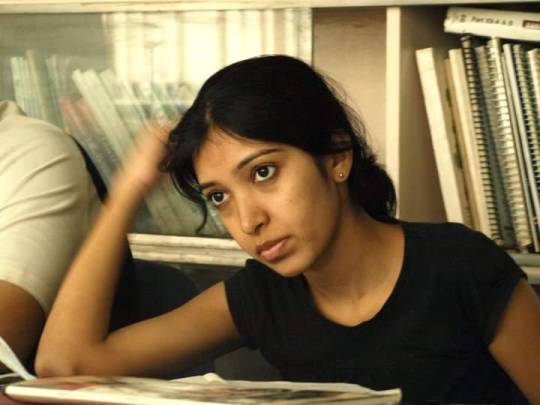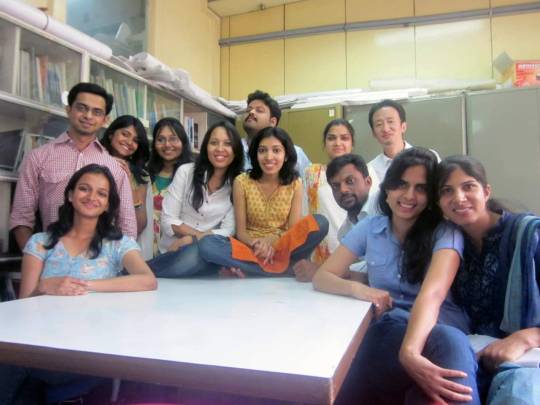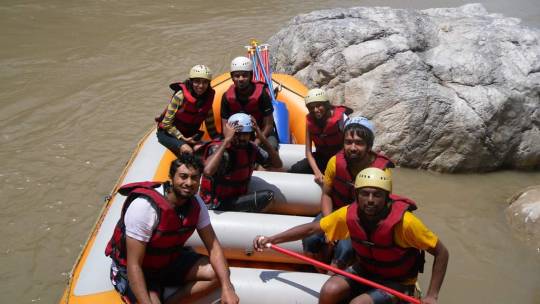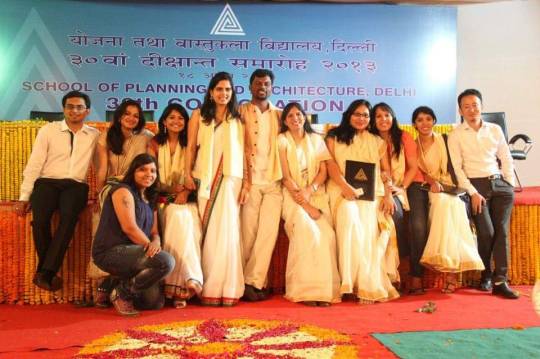#and last semester I learned that my master’s degree programme cannot accommodate the thesis I want to write
Text
.
#hoo boy lads I’m going out of my mind I have so much to do and no time to do it#‘you could have planned this out better’ Bitch I am the first person in my immediate family#who has even thought seriously about moving to a different country#and I HAVE ALREADY lived in another country before but it was within the confines of an exchange programme#nobody knows what I’m doing this time around and therefore nobody can help me plan#I’ve been feeling burnt out since Fall of 20-goddamn-22#and last semester I learned that my master’s degree programme cannot accommodate the thesis I want to write#life took my plans and ripped them up into millions of little pieces#and yeah you can say ‘tough shit. that’s life’ but I’m SO TIRED of this happening#because my whole life has been like that#‘you can make your own decisions when you have your own house/apartment/life’#OKAY you’ve been telling me that my whole life BUT WHEN IS IT SUPPOSED TO HAPPEN?#I am TRYING to take my life by the horns and make things happen but#I can’t help noticing how precarious my position is#I have to drive across country hoping my only form of transportation doesn’t somehow fail me#I have to set up a new life in a new country where I don’t know anyone and I have never lived before#it’s like trying to build a house off the side of a cliff. one wrong move? one really bad day? and I’m toast.#and yeah I signed up for this but it’s because I’M SO TIRED OF WAITING for things to fall into a place that would make this change easier#nothing’s getting easier! everything just keeps getting harder! and no matter how many times I keep beating my head against the wall#hoping I can make things fall into place…nothing seems to change for the better. and I’m sick of it!#they say good things come to those who wait but I’ve been waiting for twenty!! goddamn!! years!! and things are still the same#like standing water it just sits there and festers#I want to stop merely surviving and start LIVING for once#I want to *do* something but I need support and I feel bad asking for it#why is it so hard to make myself believe I’m allowed to take up space? why is it so hard to ask for help??#maybe because I’m worried that I’m not allowed to take up space..and I know that when I ask for help#it’s often met with non-committal sayings and shrugs and ‘well okay. you tell me what you need to do and we’ll figure it out.’#maybe I don’t know what I need to do! maybe I need help figuring that out! it doesn’t help when all I hear is ‘yep. adulting is hard’#LIKE I DIDN’T FUCKEN KNOW THAT. maybe instead of stating the obvious we could FIGURE OUT A WAY TO MOVE FORWARD?!#I’m going absolutely out of my fucken mind
2 notes
·
View notes
Text
Interview series - What after B.Arch? #12
Interviewee: Ar. Lolia Mary
Post-graduation: Masters in Environmental Planning | School of Planning and Architecture, New Delhi, India
What prompted you to take up this particular program?
I felt the need to focus on larger scales and broader perspectives of development, to understand the dynamics of how and why we have different types of built landscapes across various regions. By the 4th year in my undergraduate study, I was gravitating towards learning more about natural systems and environmentally sustainable designs. Master’s in Environmental Planning was the most appropriate course, which fit my inclination and interest w.r.t scale and natural systems.

When did you take up master’s?
I got into Master’s course immediately after Bachelor’s.
My advice is simple: if you have a clear inclination towards further studies and have examined why you need to pursue a master’s course and a preferred subject, I don’t think you should stop yourself from immediately joining a course. But if you are inclined to practising Architecture in the long run and do not feel the need to further your studies immediately then you might want to get into practice. This will buy yourself more time to think through.
When did you start with the application process considering the time for application, scholarship/bursary deadlines etc.?
I started enquiring and doing my research on the application process, subjects/courses, colleges etc. around the beginning of the 5th year of the course. Of course, towards the last semester in Architecture, it was more intense.
One should start researching, reviewing courses and colleges at least a year before (if not a year and a half). This will give you more options and enough time to weigh your options. If planning on taking up courses outside of India, then one might want to give oneself at least 15 months’ time so as to not miss courses starting at different times of the year.
What preparation did you do before starting master’s?
I did some background study on environmental planning and prepared for moving to a new city. The school did not hold any pre-master’s programs/induction week/courses. I spoke to alumni and professors of the program.
Did you have to give any entrance tests? How did you plan for them?
SPA’s admission procedure at that time (2010) had two stages of candidate evaluation;
Stage 1) Detailed application form submission (Statement of Purpose, Portfolio-CV, and application form, Scorecards in Architecture and Scorecard of GATE exam)
Stage 2) Short-listed candidates are called in for a short written test and an Interview thereafter
Based on the results of these stages of review, the final list of successful candidates is put up.
It is ideal if you also qualify and secure a good rank in GATE; this will increase your points at the admission ranking and also help secure GATE scholarship.
How long was your program?
It was a two-year course. Courses began in July 2010 and ended in April 2012. Post-program opportunities were not available.
Did you have post-masters plans in mind when you took up masters? Or did you go with the flow?
My intent was to work in planning and environmental sector wherein I gain experience while working in all types of organizations (research-based organizations, government based, NGO, corporate etc.). I had given myself the flexibility for seeking job opportunities with an open mind initially, so it was easier to go with the flow. My idea was that I need to experience each type of organization to better understand how the sector itself functions.
How was the experience at the school?
It was quite rewarding given the exposure received especially to be able to hear and learn from pioneers, decision makers and change makers of planning and development in India. There is no stopping on how much one can learn because it is up to the individual to take initiative.
Even though at times chaotic with multiple perspective and reasonings, this chaos opens one’s horizon of knowledge and gives you the grounding required to understand planning and development in a developing nation like ours which is much complex unlike developed nations. This is my take.

How was the teaching at your school?
The teaching was heavily anchored on in-depth research (within the constraint of time), brainstorming, discussions, group work and field work. This is important so as to learn; how to agree to disagree, resolve conflicts and evolve balanced recommendations considering multiple aspects. This skill is fundamental while practising the profession of planning as it is multi-sectoral in its nature of practice on ground.
Classes were a standard 9.00am-5.00pm, five days a week with occasional special classes during Saturdays. Yes, there was quality time for extracurricular activities.
Tell us more about the mentors.
All the faculty in Department of Environmental Planning were very approachable (they still are) and one could approach them at their department rooms freely and they were accessible except when they were occupied with prior appointments.
I’d like to especially remember and thank Prof. Aseesh Maitra, Prof. Meenakshi Dhote, my thesis guides Ar. Anita Tikoo and Asst. Prof. Neha Tripati Goel for their wisdom, inspiration, patience and endurance.
Were you involved in research projects/competitions while studying?
Partly, through our studio and department projects.
Could you tell us in brief what your thesis/dissertation/final project was about?
It was on developing a model framework to evaluate landscape for its functional capacity to perform ecosystem services.
What kind of dialogue did you have with your professors?
I had the best thesis guides I could ask for. Ar. Anita Tikoo and Asst. Prof. Neha Tripathi Goel were exactly who, I and my topic needed. They always asked the right questions and also encouraged and stirred me to ask the right questions. They were open to hearing my thoughts and provide excellent critique was truly involved as my thesis guides. I think asking the right questions and encouraging us to ask questions pushes one to seek answers ourselves and thus expand the scope of learning.
How was the structure of your meetings with the guides?
We had a structure and a tentative schedule with targets applicable to all students. But over and above both my thesis guides were available for discussions whenever I required, to review with them. We had discussions before the scheduled submission and presentation of the work.
Did you encounter any challenges while doing your thesis?
I cannot remember any negative challenge. Thesis is about taking up a challenging research-based topic which you try and engage with in-depth for the given time. And a good thesis topic shouldn’t and cannot end with the final submission or jury presentation because it would have a further scope of examination and enquiry.
Could you please tell us about the thesis assessment system?
We had intermittent presentation and grading through the various stages of the thesis semester. It concluded with a final jury presentation (external and internal jurors) and submission of the report.
How did you manage the finances?
Fully funded by my kind and loving parents as I hadn’t received any scholarship.
Could you tell us about your accommodation?
Stayed in the campus hostel. The hostel building was right at the campus and barely took 5 minutes to walk to the department.
Did you travel while/after studying?
Yes. As much as I could.
Through Architecture and Environmental Planning course, I travelled to Jaisalmer, Jaipur, Udaipur, Junagadh, Kutch, Ahmedabad, Hyderabad, Puri, Bhubaneswar, Varanasi, Sarnath, Nainital, New Delhi, Agra, Fatehpur Sikri, Bhopal, Batindha, Puducherry; with the intent of experiencing the city and architecture, some were part of the studio projects/thesis and some places were purely leisure.


Are there any notable incidents/ anecdotes from post-grad studies that you wish to share?
I can’t think of any one incident. I often tell people it was so much fun learning and going to the classes especially because we were a small group of 12 students (12-15 seats in M.EP course) and luckily we synced and worked very well together through consensus and disagreements. Of course, all the campus extracurricular activities and travelling was awesome, thanks to a lot of friends from my B.Arch times who were also studying various Master’s courses.
How much one learns and grows is up to the individual. Professors and guidance can only show you the options and directions available and it’s entirely up to you to choose the path of your interest/capacity. And for that self-reflection is important.

How do you think doing a master’s degree helped you?
Unlike many other courses which are focused on individual students and individual projects; planning requires persistent and successful collaboration across sectors and specialized professionals. Apart from the learning of the subject and the way it was taught, one of the important takeaway was, the first-hand experience of the strength of collaboration which enabled a smooth transition into the profession, especially in the initial years.
The university met my expectations to a great extent. The information about the course on the website reflected reality.
Did the city/country you studied in play a major role during your postgraduate study?
Yes. At least for Planning course, it ensured a sound foundation of the context (social, political, economic and environmental) that I would be working in for the next 7 years.
Could you please tell us about your current work and future plans?
I am currently working remotely as a consultant for a project and another programme run by an NGO. I am quite adaptive in nature, so my future plans are also very dynamic. My area of interest is applied research and hence I am open to any good platform that enables it.
What message would you like to give to students/professionals planning their post-graduate studies?
Well, whichever course one chooses, ensure that you know why you want to take up the course (for whatever reason be it professional, ideological, or simply self-growth). Do your research on the various options that you have w.r.t courses, universities and locations worldwide.
About the interviewee…
Lolia Mary is an Architect and Environmental Planner and has been working in the sector for the past 7 years. She completed her Postgraduate course (Master’s in Environmental Planning) from the School of Planning and Architecture, New Delhi.
She has worked with an NGO, with a research-based practising organization as well as with a government agency over the past seven years. She recently moved to Germany and continues to work remotely as a consultant to a few organizations in India.
#Architecture#architecture students#Architects#@architecture#architecturestudent#m.arch#whatafterbarch#postgraduation#higherstudies#new delhi#schoolofplanningandarchitecture#environmentalplanning
1 note
·
View note